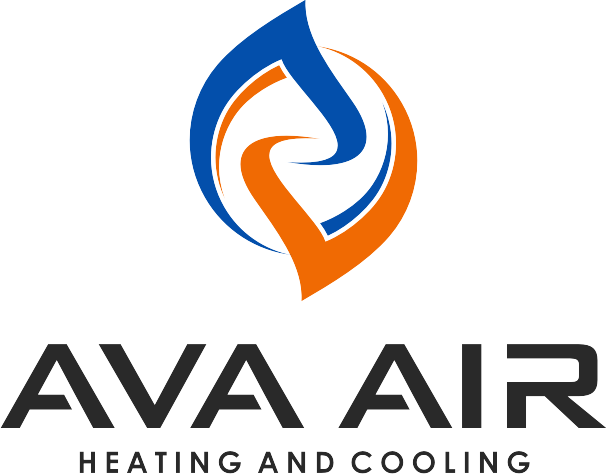
Modern HVAC Technologies Every Home Needs
Ask us about our service plans!
The Evolution of HVAC Systems
Over the years, HVAC systems have undergone significant transformations, becoming more than just basic heating and cooling units. In this blog post, we’ll explore the essential modern HVAC technologies that every home needs.
From smart thermostats that learn your preferences to high-efficiency systems that reduce your carbon footprint, these innovations are setting new standards in home comfort. Let’s dive in.
Understanding Your HVAC System
Over the years, HVAC systems have undergone significant transformations, becoming more than just basic heating and cooling units.



Smart Thermostats: The Brain of Your HVAC System
In the era of smart homes, thermostats have evolved far beyond their traditional role. Today’s smart thermostats, like those from Nest, Ecobee, and Honeywell, are not just about adjusting the temperature; they are the central hub of your HVAC system, offering intelligent control, energy savings, and seamless integration with other smart devices.
What Makes Smart Thermostats Essential?
- Learning Capabilities: Smart thermostats learn your daily routines and preferences, adjusting the temperature automatically to match your lifestyle. For example, if you like it cooler at night, the thermostat will start lowering the temperature as bedtime approaches without you needing to lift a finger.
- Remote Control: Whether you’re at work, on vacation, or simply lounging in another room, smart thermostats allow you to control your home’s temperature from anywhere using a smartphone app. Forgot to turn down the heat before leaving? No problem—just adjust it on the go.
- Energy Efficiency: One of the standout features of smart thermostats is their ability to optimize your HVAC system’s performance. By adjusting heating and cooling cycles based on your actual usage patterns, these devices can significantly reduce your energy bills. Many smart thermostats also provide detailed reports and insights into your energy consumption, helping you make smarter decisions about your home’s energy use.
- Integration with Smart Home Systems: Smart thermostats are designed to work seamlessly with other smart home devices. Whether it’s voice control through Amazon Alexa or Google Assistant, or integration with other smart gadgets, these thermostats bring a new level of convenience and automation to your home.
Why You Should Consider One: Installing a smart thermostat is one of the easiest and most effective ways to modernize your HVAC system. It not only enhances your comfort but also helps you save on energy costs. For homeowners looking to balance convenience with cost-effectiveness, smart thermostats are a must-have technology.
Zoned HVAC Systems: Customized Comfort for Every Room
While smart thermostats offer precision control over your home’s temperature, zoned HVAC systems take this concept a step further by allowing you to tailor the climate in different areas—or zones—of your home independently. This means you can keep the living room cozy while letting the bedrooms stay cooler, or adjust the temperature on different floors of your home according to how they’re used.
How Zoned HVAC Systems Work:
- Individual Zones: A zoned HVAC system divides your home into different zones, each controlled by its own thermostat. This allows for personalized temperature settings in each zone, giving you more control over your home’s comfort.
- Dampers and Thermostats: The system uses motorized dampers installed within the ductwork to control the airflow to each zone. These dampers open and close based on the thermostat settings, ensuring that each area of your home receives the right amount of heating or cooling.
- Energy Savings: By only heating or cooling the areas that need it, zoned systems can reduce energy waste significantly. For instance, you can turn down the heat in unused bedrooms during the day or cool only the kitchen and living room when you’re entertaining guests. This targeted approach not only saves energy but also reduces wear and tear on your HVAC system.
- Integration with Smart Technology: Zoned systems can be paired with smart thermostats to create an even more efficient and user-friendly environment. Imagine controlling the temperature in each zone of your home with a simple voice command or adjusting settings from your phone before you arrive home. This level of customization ensures that you’re always comfortable, no matter where you are in your house.
Why Zoned HVAC Systems Are Worth the Investment: For larger homes or families with diverse temperature preferences, zoned HVAC systems offer a practical solution that enhances comfort while improving energy efficiency. By investing in a zoned system, you not only increase the value of your home but also enjoy a more tailored and economical approach to heating and cooling.
High-Efficiency HVAC Systems: The Future of Sustainable Living
As energy costs continue to rise and environmental concerns take center stage, the demand for high-efficiency HVAC systems is growing. These systems are designed to provide maximum comfort while using significantly less energy, making them an excellent choice for homeowners who want to reduce their carbon footprint and save on utility bills.
What Defines High-Efficiency?
High-efficiency HVAC systems are characterized by their ability to deliver superior performance with minimal energy consumption. The key metric for measuring the efficiency of these systems is the Seasonal Energy Efficiency Ratio (SEER) rating. The higher the SEER rating, the more efficient the system. For example, while older HVAC systems might have SEER ratings around 10, modern high-efficiency models often boast ratings of 20 or higher, translating to substantial energy savings.
Key Features of High-Efficiency HVAC Systems:
- Variable-Speed Compressors: Unlike traditional systems that operate at a single speed, variable-speed compressors adjust their output to match the exact needs of your home at any given time. This not only reduces energy consumption but also improves overall comfort by maintaining a more consistent indoor temperature.
- Advanced Air Filtration: High-efficiency systems often come equipped with sophisticated air filtration technologies that remove pollutants, allergens, and even some viruses from the air. This is particularly beneficial for households with members who suffer from allergies or respiratory conditions.
- Humidity Control: Maintaining the right humidity levels is crucial for comfort and health. High-efficiency HVAC systems often include advanced humidity control features, which help prevent problems like mold growth and dry air, contributing to a healthier indoor environment.
Long-Term Benefits
Investing in a high-efficiency HVAC system might require a higher upfront cost, but the long-term benefits are well worth it. Here’s why:
- Lower Energy Bills: Thanks to their superior efficiency, these systems consume less energy, leading to noticeable reductions in your monthly utility bills. Over time, the savings can more than offset the initial investment.
- Environmental Impact: High-efficiency systems are better for the environment. By using less energy, they reduce greenhouse gas emissions, helping you do your part to combat climate change.
- Enhanced Comfort: With features like variable-speed compressors and advanced air filtration, high-efficiency systems provide a more comfortable living environment. You’ll enjoy consistent temperatures, cleaner air, and better humidity control, all of which contribute to a higher quality of life.
Considerations When Choosing a High-Efficiency HVAC System
When selecting a high-efficiency HVAC system, it’s important to consider the specific needs of your home. Factors like the size of your home, local climate, and your family’s comfort preferences will influence the best choice for you.
Things to Keep in Mind:
- Initial Cost vs. Long-Term Savings: While high-efficiency systems typically cost more upfront, the savings on energy bills and potential tax credits or rebates can make them a financially sound choice in the long run.
- SEER Ratings: Aim for a system with a SEER rating that balances efficiency with cost. Higher SEER ratings mean more energy savings but also come with a higher price tag.
- Professional Installation: To maximize the benefits of a high-efficiency system, professional installation is crucial. An experienced HVAC contractor will ensure that the system is properly sized and installed, optimizing its performance and efficiency.
Geothermal Heat Pumps: Harnessing the Earth’s Natural Energy
One of the most innovative and sustainable HVAC technologies available today is the geothermal heat pump. Unlike traditional systems that rely on the outside air to heat or cool your home, geothermal heat pumps tap into the consistent temperatures found below the earth’s surface.
How Geothermal Heat Pumps Work
Geothermal heat pumps use a series of underground pipes, known as a ground loop, to exchange heat with the earth. During the winter, the system extracts heat from the ground and transfers it into your home. In the summer, the process is reversed, with heat from your home being absorbed into the ground.
Why Geothermal?
- Exceptional Efficiency: Geothermal systems can be up to four times more efficient than traditional HVAC systems because they rely on the relatively stable temperature of the earth, rather than the fluctuating air temperature, to heat and cool your home.
- Longevity: The underground components of a geothermal system can last 50 years or more, and the indoor components typically last about 25 years, which is significantly longer than traditional HVAC systems.
- Minimal Maintenance: Geothermal systems require less maintenance than conventional systems because they have fewer moving parts and are protected from the elements.
Environmental and Financial Benefits
Geothermal heat pumps are one of the most eco-friendly HVAC options available. By using the earth’s natural energy, these systems produce far fewer greenhouse gases compared to traditional heating and cooling methods. Additionally, many homeowners find that the energy savings offered by geothermal systems result in a return on investment within a few years.
Key Benefits:
- Energy Savings: Because they are so efficient, geothermal heat pumps can reduce energy consumption by up to 70%, leading to substantial savings on energy bills.
- Environmental Impact: Geothermal systems have a low carbon footprint and can significantly reduce your home’s overall environmental impact.
- Incentives and Rebates: Many governments and utilities offer incentives for installing geothermal systems, which can help offset the initial installation costs.
Installation Considerations:
- Initial Cost: The upfront cost of a geothermal system is higher than traditional systems due to the need for underground installation. However, this cost is often mitigated by long-term savings and available incentives.
- Property Suitability: Geothermal systems are best suited for homes with sufficient outdoor space for the ground loop installation. It’s important to consult with a professional to determine if geothermal is a good fit for your property.
If you want to learn more options for modern HVAC upgrades and technology, stay tuned for a part two to this blog post. If you’re ready to take your HVAC system into the modern age, give us a call now and let us know how we can help!

